
It’s an open secret that Netflix isn’t having a great year. They are dealing with everything from a mass exodus of subscribers to countless headlines about their price increases. But would you believe the weirdest Netflix controversy is one surrounding Marilyn Monroe?
Ana de Armas stars in Blonde, an upcoming Netflix-exclusive biopic focusing on Marilyn Monroe’s life. The film is directed by Andrew Dominik, and the MPAA recently rated this movie as NC-17.
There has been a lot of fan speculation and theory about what led to this rating. But what’s the real cause, and how does it tie into the original source material for the movie? Keep reading to find out!
What is ‘Blonde’ based on?
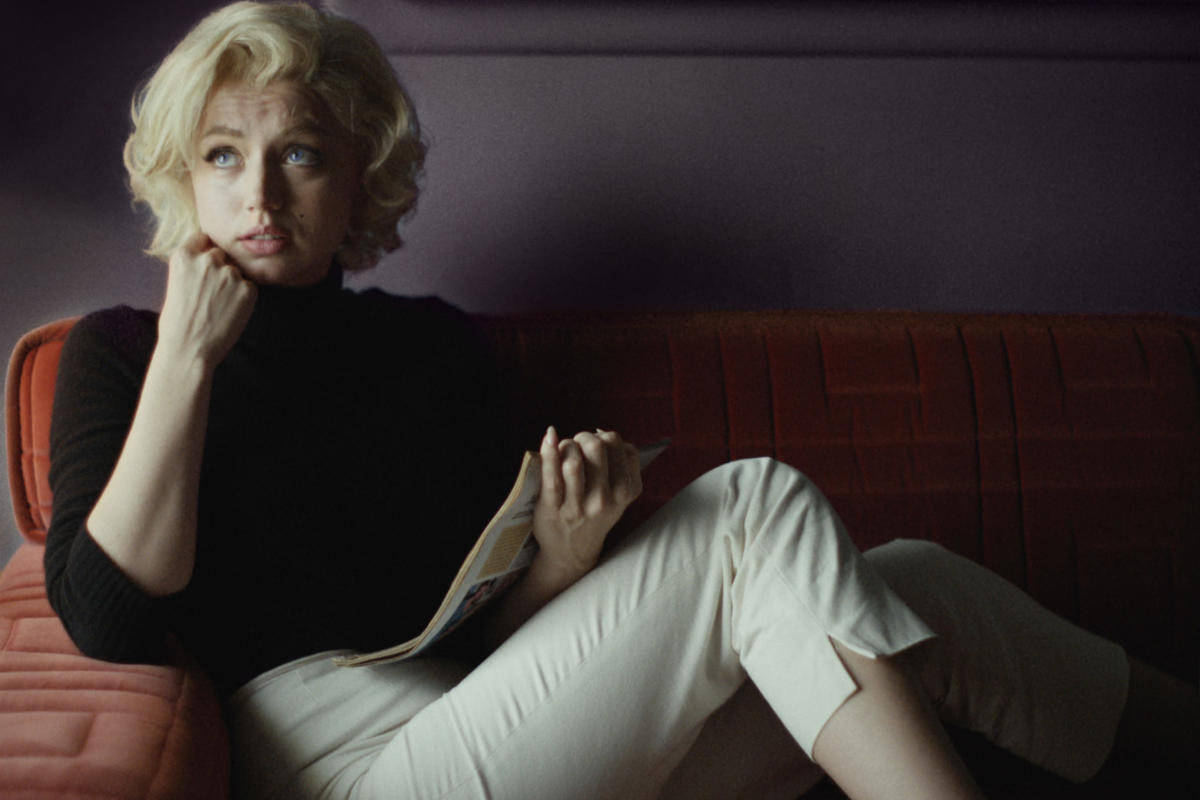
There have been plenty of movies focusing on the life of Marilyn Monroe. What, then, makes this movie different? The fact that it is a film adaptation of one of the most ambitious literary works of recent decades.
Back in 2000, writing legend Joyce Carol Oates released the book Blonde. The book focused on Marilyn Monroe and clocked in at about 700 pages, so it was already a very ambitious text. But Oates had a new angle: she was going to write about the life of Monroe in the context of a work of fiction.
What does this mean? For one thing, many Monroe biographers disagree on many aspects of her life. By writing as a work of fiction, Oates freed herself from having to reconcile many differing accounts of Monroe’s life.
For another thing, the book gives Oates the full creative freedom she needed to explore someone larger than life. As the New Yorker describes the novel, it “is a work of fiction and imagination, and Oates plays with, rearranges, and invents the details of Monroe’s life in order to achieve a deeper poetic and spiritual truth.”
‘Blonde’ is Netflix’s first NC-17 movie
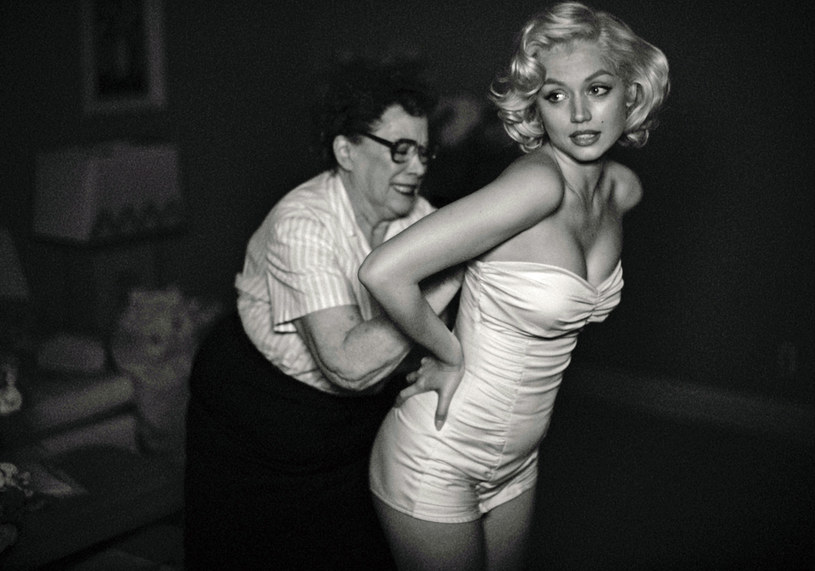
The good news for this film is that even before it releases, it is already making Netflix history. The bad news is that the film is making history for a strange reason: being the first NC-17 Netflix original film.
In the age of streaming, many creators have reveled in the freedom that comes from not worrying about traditional networks. It means you don’t have to write around commercial breaks or write to arbitrary episode lengths.
At the same time, an NC-17 rating is often seen as a kiss of death because it keeps many more people from watching the film. And in the case of Blonde, the controversy over the rating is rapidly threatening to overcome the substance of the film.
Why is ‘Blonde’ rated NC-17?
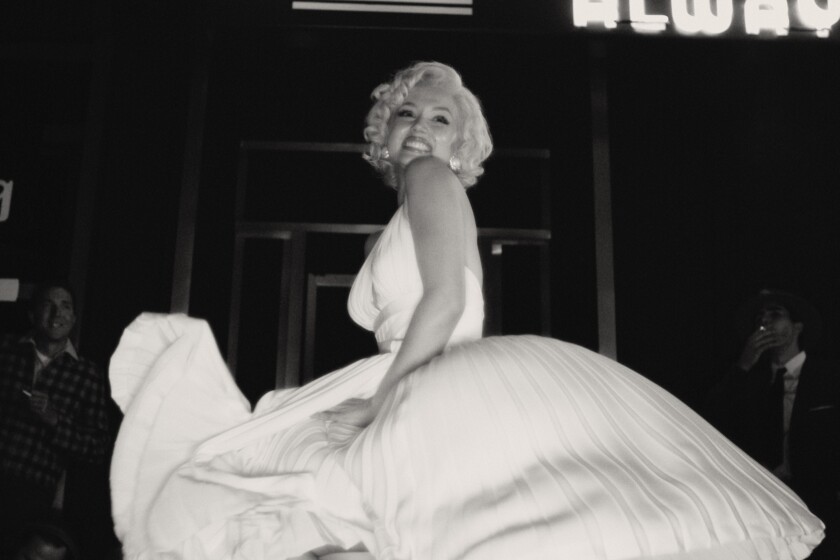
So, what caused Blonde to get an NC-17 rating?
The MPAA doesn’t have to disclose its reasoning for a rating beyond basic explanations. For example, Blonde got an NC-17 due to “some sexual content.” As CinemaBlend points out, that is a broad description that applies to many R-rated movies instead. And because we didn’t get a “nudity” warning, the rating is presumably tied entirely to one or more sexual acts.
In fact, film director Andrew Dominik had already assumed the movie would get an NC-17 rating. In an interview with Screen Daily, he revealed the rating is likely due to a “graphic rape scene.”
He’s not happy about it, though, calling the rating “horse***t.”
“It’s a demanding movie. If the audience doesn’t like it, that’s the f***ing audience’s problem. It’s not running for public office.”
But if Dominik isn’t happy about the rating, many Marilyn Monroe fans are unhappy that the film depicts a sexual assault that never actually happened in real life. So, why does Blonde include it?
‘Blonde’ is a fictionalized version of Marilyn Monroe’s life
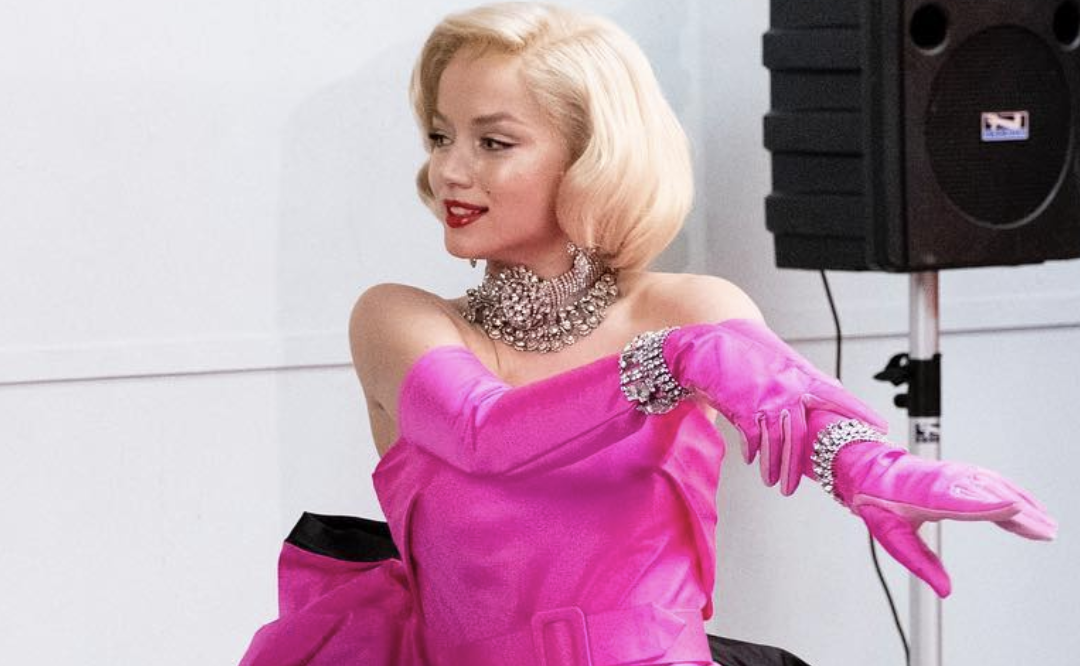
One of the reasons Andrew Dominik is salty about the rating is quite simple. This is one case where the director can’t win for losing.
Remember when we said this was adapting a fictionalized work rather than retelling Monroe’s actual life? Well, the graphic rape scene is at the heart of the matter. The book features a fictional casting couch session which, as the New Yorker reports, was one reason some critics thought the text was “lurid, eccentric, and fierce.”
Long story short? If Dominik had left the scene out, it would have been a poor adaptation of the book. However, accurately recreating that scene has now led to a major drama that covers all press for the film like a dark cloud.
But if the director is upset over the rating, what does star Ana de Armas think?
Ana de Armas is not happy with the rating
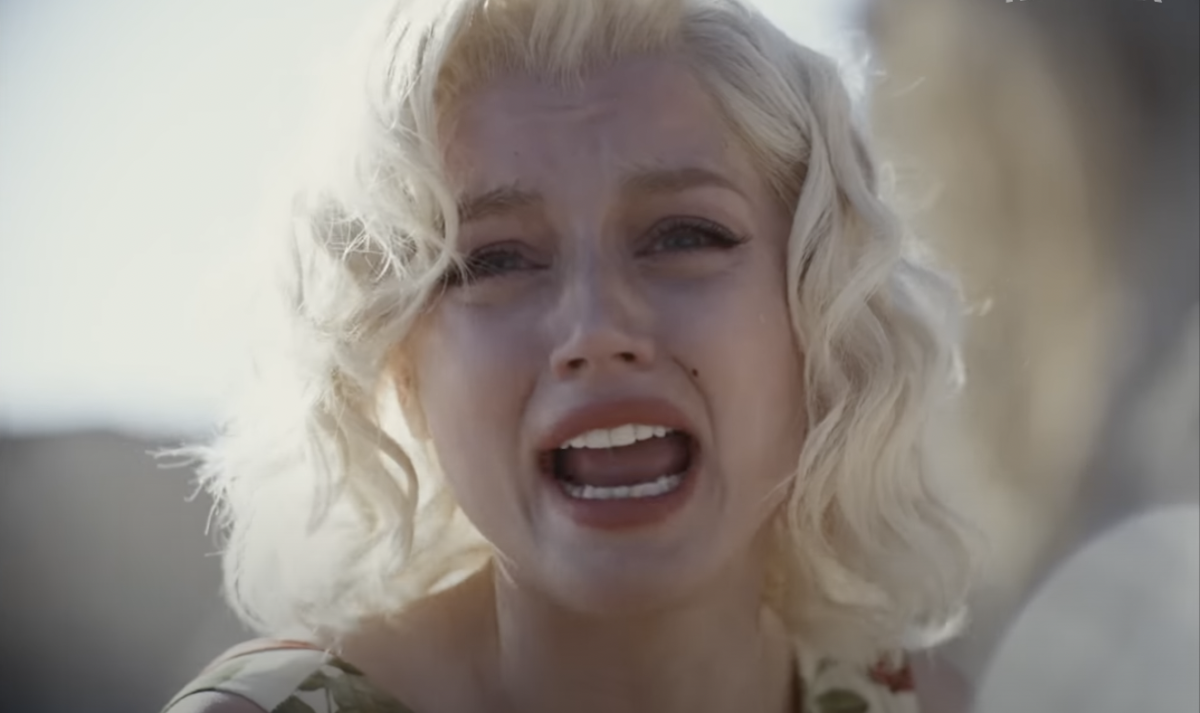
We might expect the director of Blonde to be upset with the rating. However, the movie’s star and onscreen Monroe, Ana de Armas, agrees with his assessment.
In an interview with L’Officiel, the star made her feelings clear. “I can tell you a number of shows or movies that are way more explicit with a lot more sexual content than Blonde,'” she said. “But to tell this story it is important to show all these moments in Marilyn’s life that made her end up the way that she did. It needed to be explained.”
Of course, her statements bring us back to the central debate. Is it important to show the moments we don’t know actually happened? Does fictionizing a real person move us further from or closer to their truth?
Like Monroe, these questions are larger than life. And we can only hope the movie provides some of the answers that we need!
Blonde releases on Netflix on September 28.

Interesting
Okdh
Thanks for sharing
Cool 👌